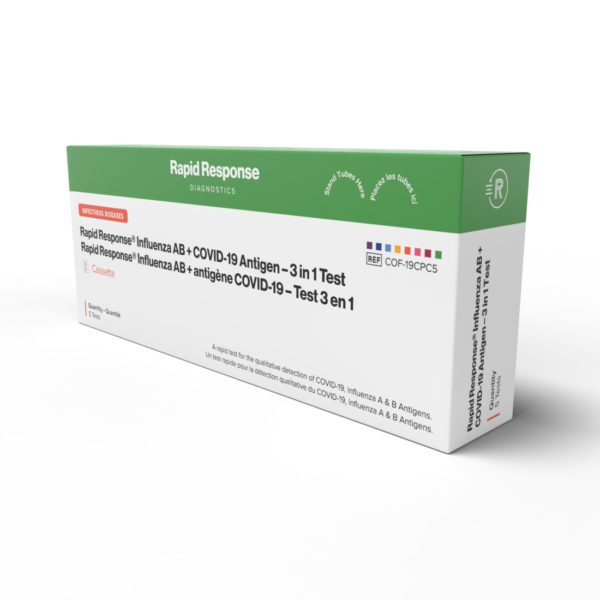Inflammatory bowel disease (IBD) is a complex condition that affects the lives of millions worldwide.
If you have IBD, you’ll experience challenges that range from managing daily symptoms to understanding the nuances of treatment options.
This comprehensive guide explores the causes, symptoms, primary types and treatment strategies for IBD.
What is inflammatory bowel disease (IBD)?
Inflammatory bowel disease is an umbrella term used to describe disorders involving chronic inflammation of the digestive tract. Unlike ailments that are limited to occasional digestive discomfort, IBD can lead to severe, life-altering complications and requires ongoing medical care.
When you have IBD, your body’s immune response mistakenly attacks healthy cells in different parts of your GI tract, causing a cycle of inflammation that doesn’t properly subside. This leads to a wide range of symptoms and affects your overall health.
Exploring the primary types of inflammatory bowel disease
The two main types of IBD are Crohn’s disease and ulcerative colitis. Recognizing the type of IBD you’re dealing with is a vital step toward navigating this challenging journey and working towards relief and wellness.
Crohn’s disease can affect any part of the GI tract from the mouth all the way to the anus, with inflammation often spreading deep into the layers of affected bowel tissue.
Ulcerative colitis, on the other hand, is characterized by long-lasting inflammation and ulcers primarily in the lining of the colon and rectum.


Identifying common symptoms of inflammatory bowel disease
When you’re living with inflammatory bowel disease, your body signals distress through a variety of symptoms that can range from mild to severe and fluctuate over time.
Common symptoms of IBD include:
- Persistent diarrhoea
- Abdominal pain and cramping
- Blood in the stool
- Reduced appetite
- Unintended weight loss
These symptoms may come and go with periods of flare-ups and remission.
Is it possible to experience both IBD and IBS?
Yes, it’s possible to experience both IBD and irritable bowel syndrome (IBS) simultaneously, a scenario that might complicate your understanding and management of your gastrointestinal (GI) health. While IBD involves chronic inflammation of the GI tract IBS is a functional disorder characterized by symptoms like:
- Abdominal pain
- Bloating
- Altered bowel habits
All these may occur without visible signs of damage or disease in the digestive tract. If you’re navigating both conditions, distinguishing between the two can be challenging because their symptoms often overlap, so it’s harder to pinpoint the cause of your discomfort at any given time.
Unravelling the causes and symptoms of inflammatory bowel disease
The exact cause of IBD remains unknown, but it’s believed to result from an immune system malfunction wherein the body’s immune response attacks the cells of the GI tract.
These factors can contribute to its development:
- Genetics
- Environmental triggers
- Abnormal immune response
- Imbalance of intestinal bacteria
Symptoms of IBD can vary in severity and may evolve over time.
If you have IBD, you might experience these symptoms:
- Frequent, urgent bowel movements
- Diarrhoea
- Blood in your stool
- Abdominal pain
- Cramping
- Fatigue
- Loss of appetite
- Weight loss
The unpredictability of flare-ups—periods when symptoms worsen—can significantly affect your daily activities and overall well-being.
Diagnosing inflammatory bowel disease
Diagnosing IBD typically involves a combination of tests and procedures, as your symptoms may resemble other digestive conditions.
Initially, your doctor will discuss your medical history and conduct a thorough physical examination.
You may undergo the following tests as well:
- Blood tests to check for signs of inflammation or anaemia
- Stool sample to rule out infections that mimic IBD symptoms
- Imaging studies, like CT scans or MRIs, to pinpoint areas of inflammation through a detailed view of your gastrointestinal tract
- Colonoscopy to allow your doctor to perform biopsies
These diagnostic tools collectively aim to accurately identify the presence and extent of IBD, while differentiating it from other conditions with similar symptoms. This comprehensive approach enables your healthcare team to develop a personalized treatment plan to manage your symptoms effectively and improve your overall well-being.
Managing inflammatory bowel disease treatment
The treatment for IBD requires a personalized approach to effectively manage your symptoms and maintain your overall health.
Your treatment plan aims to reduce the inflammation that triggers symptoms so you can achieve and maintain remission.
Commonly, your healthcare provider may prescribe these medications:
- Anti-inflammatory drugs
- Immune system suppressors
- Biologics
Other treatment strategies include:
- Nutritional therapy
- Lifestyle adjustments
- Regular exercise
- Quitting smoking
- Stress management
- Surgery, in severe cases
A personalized treatment plan, developed in collaboration with your healthcare providers, can significantly improve your quality of life while navigating IBD.
Key takeaway
Navigating life with inflammatory bowel disease requires a comprehensive understanding of its types, causes, symptoms and available treatments. While managing IBD can be complex, advancements in medical research and treatment strategies continue to improve outcomes for those affected.
Through a combination of medical intervention, lifestyle adjustments and supportive care, you can continue to lead a fulfilling life with IBD.



















































